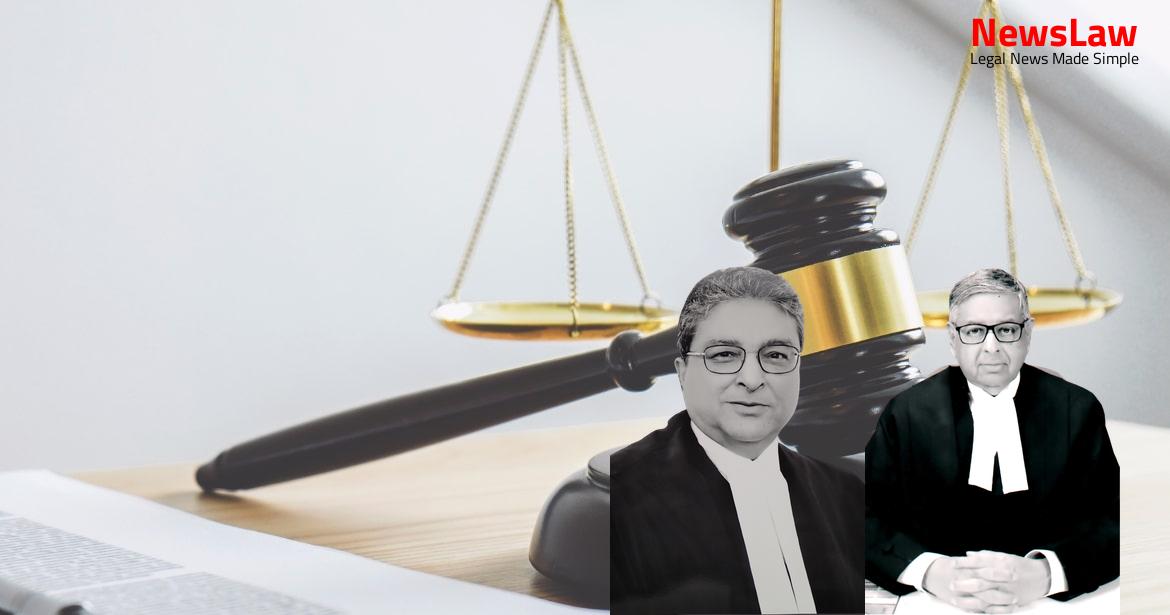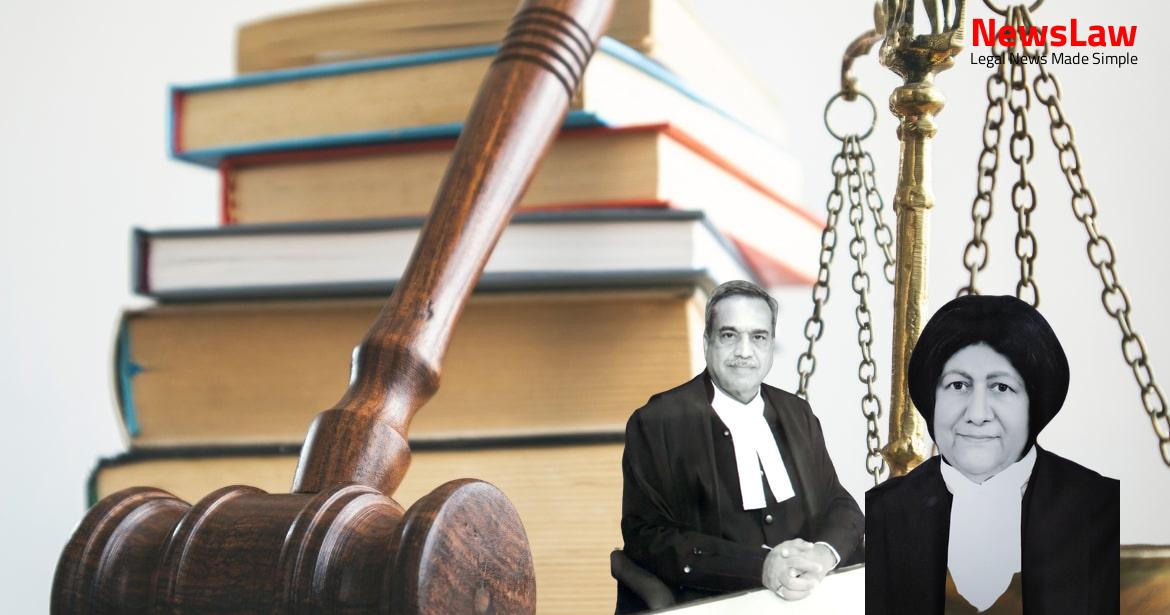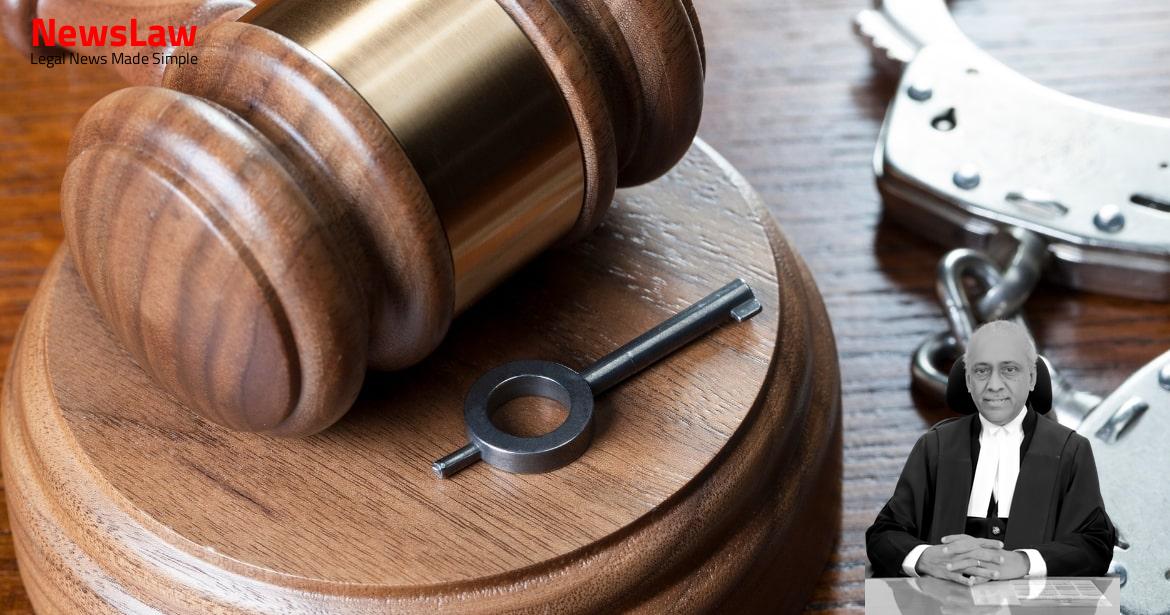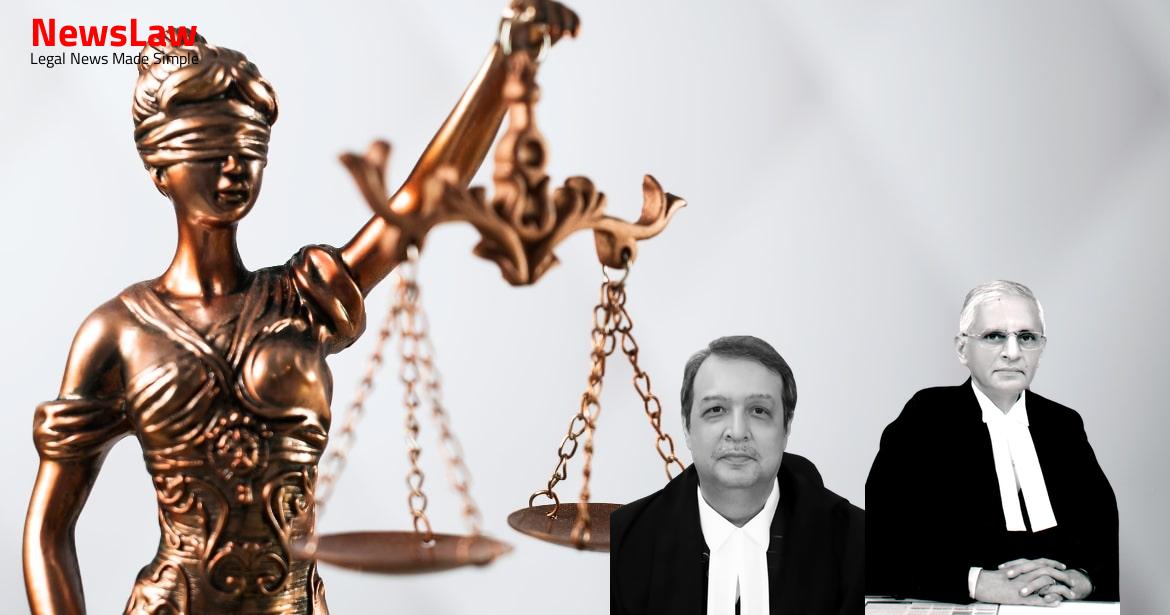This blog delves into the crux of a recent court case where the focus was on the legal analysis undertaken by the court while granting an interim injunction. The significance of principles guiding the grant of such injunctions, the discretion exercised by the court, and the factors influencing the decision are highlighted. Stay tuned for a detailed insight into how the court’s legal analysis played a pivotal role in shaping the outcome of the case.
Facts
- Respondents no.1 & 2 were restrained from acting on the agreement executed on 24.10.2019 awarding rights of the film Sholay and other films to respondent no.2.
- An intra-court appeal was filed against the order of the learned Single Judge, which was allowed in favor of the respondents.
- The Division Bench of the High Court reversed the order of the learned Single Judge granting interim injunction in favor of NHC.
- The deed required NHC to pay Rs.8.71 crores to respondent no.1 in four tranches and extend the license period until 30.09.2028.
- The balance of convenience was held to be in favor of NHC by the learned Single Judge when granting the injunction.
- Argument based on Section 14(d) of the Specific Relief Act 1963 was presented by the defendants.
- The appeals challenging the injunction granted by the Single Judge were allowed by the Appellate Bench.
- On 09.09.2015, two agreements were entered into between the appellant Narendra Hirawat and Company (NHC) and respondent no.1 Sholay Media Entertainment Pvt. Ltd. (SME) for the rights of films Sholay and Sholay 3D for the period from 01.04.2016 to 31.03.2022 for an amount of Rs.20 crores.
- Certain disputes arose regarding payment mechanism and tax burden, which were resolved between NHC and SME.
- Additional agreements were executed for an extra amount, extending rights and periods of the films.
- A Deed of Settlement on 03.12.2018 mandated further payments, extending the period till 30.09.2028.
- Dispute arose due to alleged non-compliance of the final Deed of Settlement, leading to termination notices.
- Legal actions were taken including filing of commercial suits and requests for temporary injunctions.
- Multiple addenda were executed in the license agreements after the initial agreements on 09.09.2015.
- Special leave petitions were filed questioning the Division Bench’s order regarding the ‘Sholay appeal’.
- Similar agreements were executed on the same date between NHC and Generation Three Entertainment Pvt. Ltd. in the second set of appeals.
Also Read: Court’s Jurisdiction in Re-appraising Arbitrator’s Findings
Arguments
- Mr. Mukul Rohatgi and Dr. A.M. Singhvi, along with Mr. Ankur Saigal, appeared for the NHC in both sets of appeals.
- The learned counsel outlined the principles for granting interim injunction.
- The arguments were presented on behalf of the parties by the learned counsel.
- The specific part of the judgement emphasized the importance of granting interim injunction based on these principles.
Also Read: Contrary Directions in Issuance of Letter of Intent
Analysis
- The appellate court found no extraordinary situation justifying the interim order.
- The plaintiff failed to prove readiness and willingness to perform essential contract terms.
- Injunction order granted by the Trial Court in favor of NHC was deemed justified based on certain factors.
- Interference by the Division Bench in the appeal against the injunction order was considered unwarranted.
- The appellant – NHC had made payments following the issuance of invoices by respondent no.1.
- Disputes were resolved post the Deed of Settlement execution and compliance was expected.
- The agreement between respondents no.1 and 2 during the suit pendency raised concerns.
- Final verdict on the interpretation of clauses in the Deed of Settlement deemed pending for suit proceedings.
- Non-payment of balance amount by NHC was attributed to the non-issuance of invoices by respondent no.1.
- Considerations for grant of interlocutory injunction emphasized on a non-expression of opinion on merits by the court.
- The true owners of licensed material were seen as unable to monetize their rights.
- The impugned order of March 2020 by the Single Judge was overturned in the Commercial IP Suits.
- Previous payments made by NHC against invoices issued by respondent no.1 were acknowledged.
- The case’s significant aspects revolved around the Deed of Settlement signed on 03.12.2018.
- Rules 1 and 2 of Order 39 of the Code are applicable in the granting of an interim injunction.
- Principles guiding the grant of interim injunction were summarized in the case of Colgate Palmolive (India) Ltd. Vs. Hindustan Lever Ltd.
- The grant of mandatory injunction at the interim stage is left to the sound judicial discretion of the Court, as per Dorab Cawasji Warden Vs. Coomi Sorab Warden and Ors.
- The appellate court will not interfere with the exercise of discretion of the court of first instance unless it was done arbitrarily, capriciously, or perversely.
- Considerations for granting or refusing injunction include the extent of damages as a remedy, protection of the plaintiff’s interest, strength of each party’s case, flexibility in relief, irreparable loss to the plaintiff, balance of convenience, and impact on the general public interest.
- The appellant has made out a prima facie case for grant of injunction
- The balance of convenience is in favour of the appellant – NHC
- Both sets of appeals are on the same lines with slight differences in dates and amounts
- Respondent no.2 would be governed by the injunction order granted by the Single Judge of the High Court
- The Single Judge’s order was based on sound reasoning
- No fault found in exercise of discretion by the Single Judge in granting the order of injunction
Also Read: Application for Stay in Civil Suit Rejected: Court’s Legal Analysis
Decision
- The appeals have been allowed as per the signed reportable order.
- The learned Single Judge has been requested to expedite the hearing of the suit and decide it as quickly as possible, preferably within one year, without being influenced by any previous observations or orders.
- Parties are instructed not to seek unnecessary adjournments in the High Court.
- Any pending application stands disposed of accordingly.
- The order passed by the Division Bench of the High Court is set aside, and the order of the learned Single Judge is restored.
Case Title: NARENDRA HIRAWAT AND CO. Vs. SHOLAY MEDIA ENTERTAINMENT PVT. LTD. (2022 INSC 268)
Case Number: C.A. No.-001867-001868 / 2022



